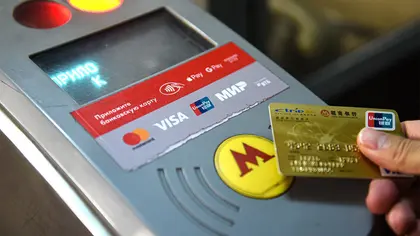The Chinese payment system UnionPay has stopped accepting cards issued by Russian banks that are subject to sanctions. This was reported by Kommersant on Sep. 2.
The decision relates to the fear of secondary sanctions. It is reported that UnionPay, on its own initiative, took steps to limit partnerships with sanctioned banks both in terms of acquiring and issuing.
The demand for UnionPay cards among Russians increased significantly after international payment systems Visa and MasterCard suspended their operations in Russia at the beginning of March. However, many foreign online stores do not currently accept payments with UnionPay cards issued in Russia.
Before that, on Aug. 23, the Russian Sberbank left Kazakhstan for “geopolitical reasons”. This followed a July 21 Twitter announcement by European Union (EU) foreign affairs diplomat Josep Borrell that the EU had included Sberbank – the largest bank of the aggressor country – in its seventh package of sanctions against Russia.
“Sberbank has decided to withdraw from the Kazakhstan market, guided by the current geopolitical situation and acting in the interests of the subsidiary bank’s clients,” the holding’s press service said in an official statement.
The national managing holding of Kazakhstan “Baiterek” bought the subsidiary of Sberbank. The signed agreement will allow the bank to return to full-fledged work and resume active operations. According to Baiterek, Sberbank Kazakhstan has been a key participant in the financial market of Kazakhstan for many years.

Poland Scrambles Jets During Russia’s Missile Attack on Ukraine
On Aug. 11, RBC-Ukraine, referring to the half yearly report of Hungarian OTP Bank, published information that OTP Bank was considering exiting the Russian market and selling its Russian subsidiary. However, the bank emphasized that it would like to continue its activities both in Ukraine and Russia.
But the situation is complicated by the signing of a decree by President Vladimir Putin on Aug. 5, which frustrates the sale of Russian subsidiaries of foreign companies, especially affecting credit and financial organizations. Currently, such operations in Russia can only be carried out with Putin’s personal approval. This requires the decision of a specialized commission of the government. But in July, the Ministry of Finance of Russia stated that it would not make such decisions.
You can also highlight the text and press Ctrl + Enter






